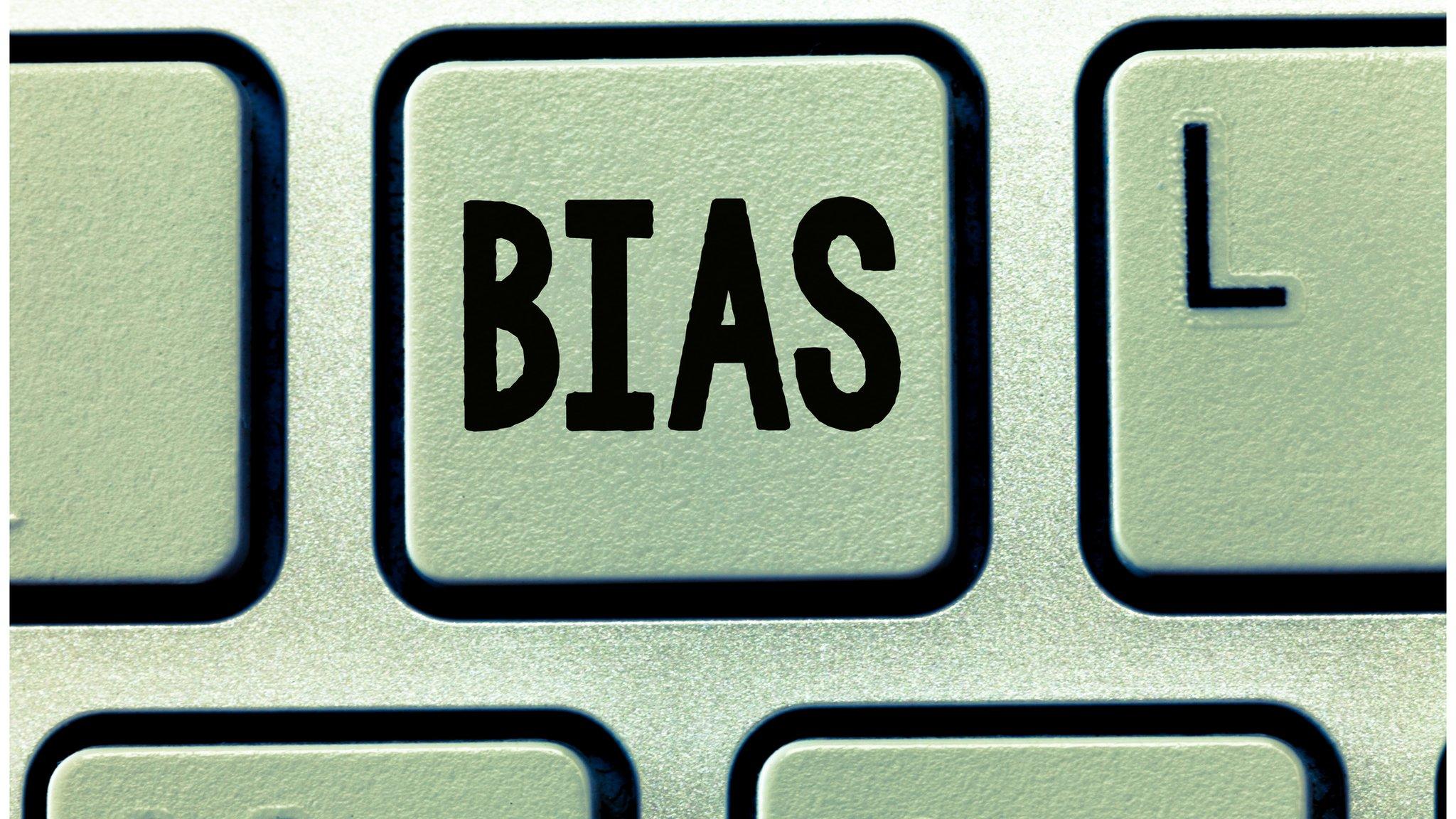Parler 'free speech' app tops charts in wake of Trump defeat
- Published
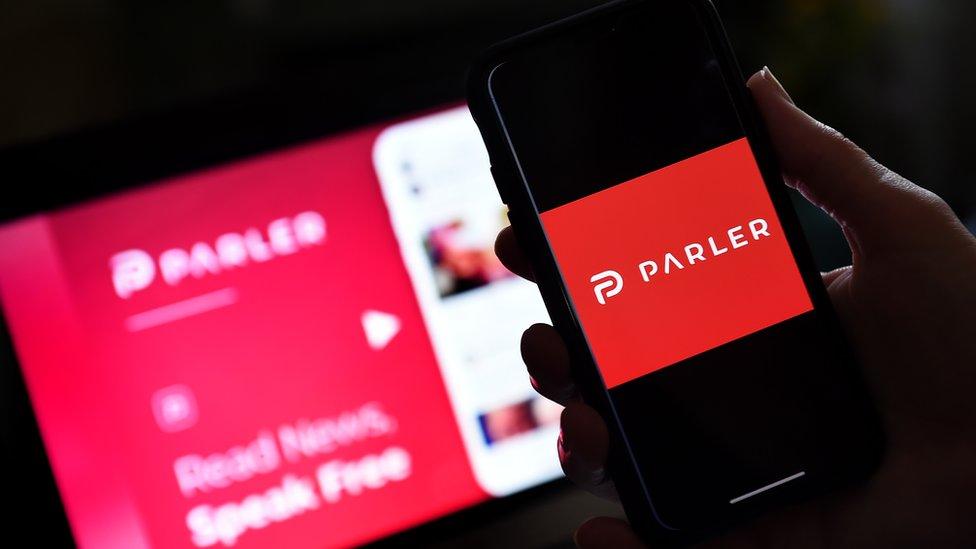
Twitter alternative Parler has become the most-downloaded app in the United States as conservatives flock to the self-styled "free speech" app after the US election.
It follows a clampdown on the spread of election misinformation by Twitter and Facebook in recent days.
Prominent investor Dan Bongino said the service was adding "thousands to users per minute" on Sunday.
But the sudden boom also caused technical issues for users.
Some reported problems registering and a slowdown of the app as its servers attempted to deal with the influx.
Parler founder John Matze said the app had added two million new users in a day, and increased its daily active users four-fold over the weekend.
"Don't worry, the app isn't normally this slow," he promised new arrivals.
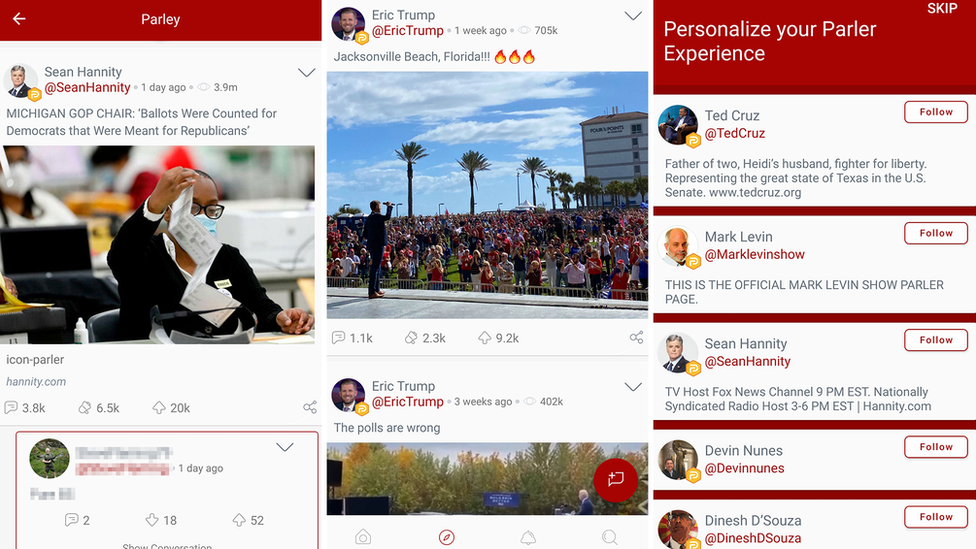
Some of Parler's most popular users are Republicans and media personalities
While Mr Trump himself is not a user, the platform already features several high-profile contributors following earlier bursts of growth this year.
Texas Senator Ted Cruz boasts 2.6 million followers on the platform, while Fox News hosts Mark Levin and Sean Hannity each have more than two million.
Newsmax, a conservative-leaning news outlet, also crept near the top of the charts at the same time.
What is Parler?
Launched in 2018, Parler has proved particularly popular among Trump supporters and right-wing conservatives. Such groups have frequently accused Twitter and Facebook of unfairly censoring their views.
It is one of a handful of start-up social networks - such as MeWe or Gab - trying to appeal to disgruntled users of the biggest platforms.
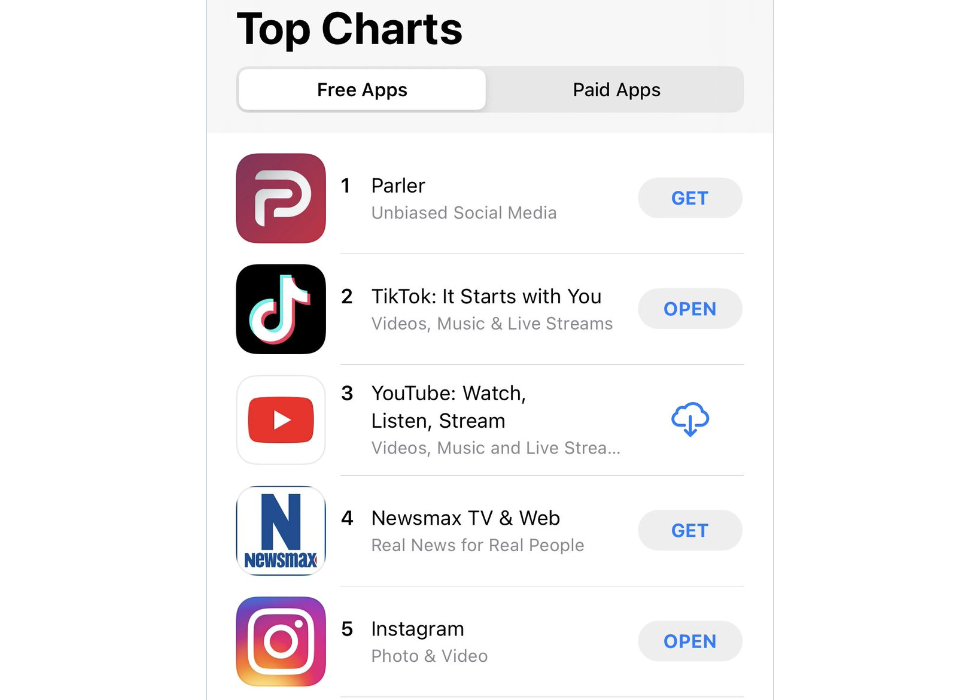
Parler is ahead of bigger, better-funded apps in Apple's US download charts
Mr Trump has been among Twitter's most vocal critics and has seen many of his tweets hidden and labelled as misleading during the election period.
Named after the French verb "to speak", the app has very similar functions to Twitter. Posts can be replied to with comments, "echoed" in a way similar to retweeting, and upvoted instead of liked.
Parler says it keeps bans to an "absolute minimum", and does not fact-check posts.
Parler does, however, ban some things, including pornography, threats of violence, and support for terrorism.
Right-wing 'safe space'
Following Joe Biden's projected win in the presidential election - and Mr Trump's unsubstantiated claims of fraud - many conservatives encouraged each other to leave Twitter and Facebook for Parler.
On Facebook, multiple events and groups with thousands of members are encouraging a "mass exit" from Facebook to Parler from Friday 13 November.
The planned exodus has been mocked by left-leaning Twitter users as an escape to a "safe space" devoid of challenge or criticism.
The light-touch approach to content moderation means that misinformation can spread more easily on the platform than on those with stricter rules.

Analysis
By Shayan Sardarizadeh, disinformation reporter
The first "mass migration" of right-wing users from major social networks to Parler happened in June, after a number of accounts that posted misleading content about Covid-19 and George Floyd protests got banned from the bigger social media sites.
Thousands of supporters of the QAnon conspiracy theory have joined in in the last few weeks, after Facebook, Instagram and YouTube took sweeping action against them in early October. Followers believe President Trump is waging a secret war against a "deep state" elite of Satan-worshipping paedophiles.
Facebook's ban on organisations that promote violence has also forced groups such as the Proud Boys and Boogaloo Bois to rebuild on Parler.
However, platforms like Parler have become an echo-chamber for a relatively limited group of like-minded users. That's why many users who have migrated to Parler make repeated attempts to create new accounts to return to major networks - as they know that's where their content can get widespread traction.
While the content posted on Parler is usually not as extreme as other self-proclaimed "free speech" platforms like Gab and MeWe, it is the home of many posts that would either be flagged as misleading or removed by major platforms - on topics like the election, Covid-19, child trafficking and vaccines.

Senator Cruz, who recently lambasted Twitter boss Jack Dorsey at a congressional committee hearing, said in June that he had joined Parler, external because social networks use their power "to silence conservatives and promote their radical left-wing agenda".
"Who put you in charge of what the media are allowed to report?" Twitter's Jack Dorsey is quizzed by Senator Ted Cruz
Tweeting on Sunday, Mr Levin encouraged his followers to "hurry" and join Parler because "I may not stay at Facebook or Twitter if they continue censoring me".
But technology analyst Benedict Evans questioned how long-standing such a shift would be.
"How many core Trump voters will now think that Fox is too left-wing and Twitter or Facebook too controlled?" he said.
"And even if that's a lot of people, will these stick - or will the scale effect of the mainstream networks pull them back?"
- Published6 November 2020
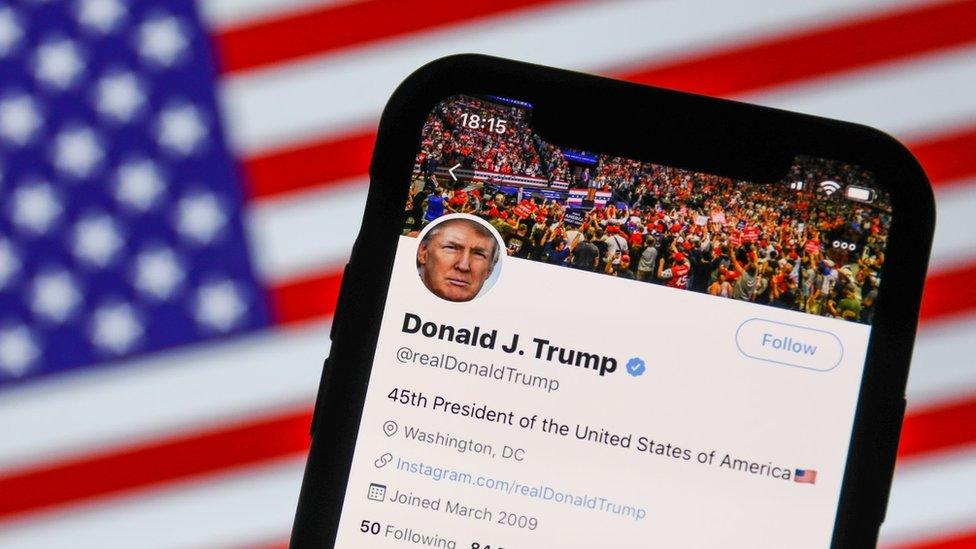
- Published4 November 2020
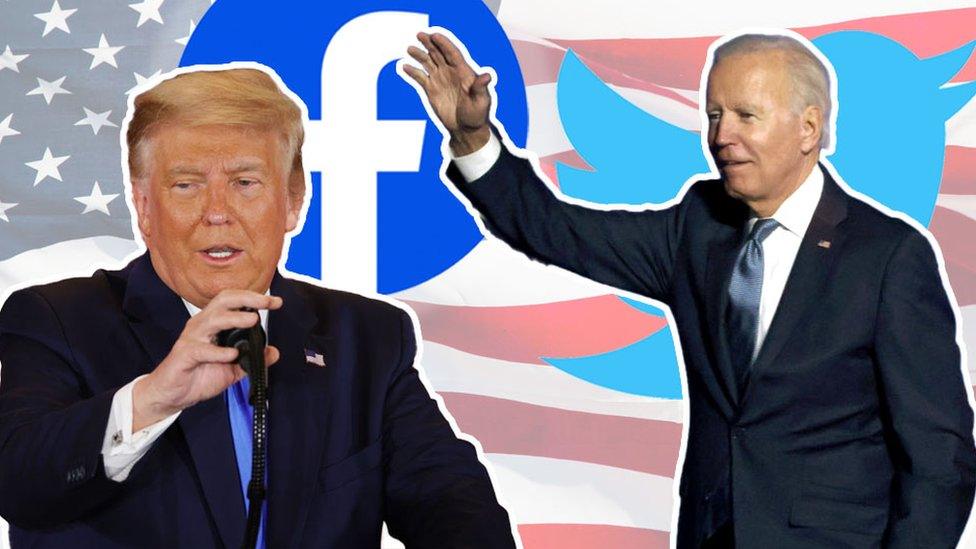
- Published29 September 2020
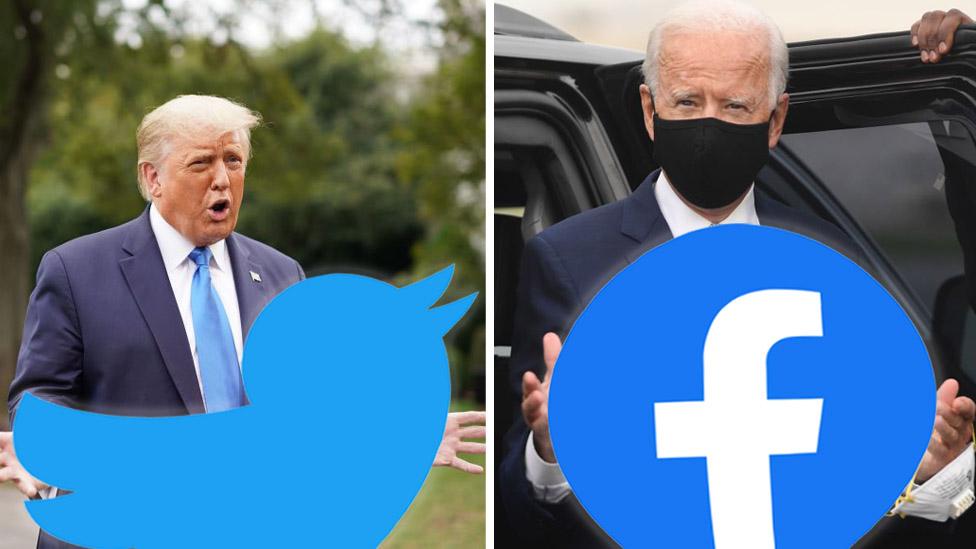
- Published29 May 2020
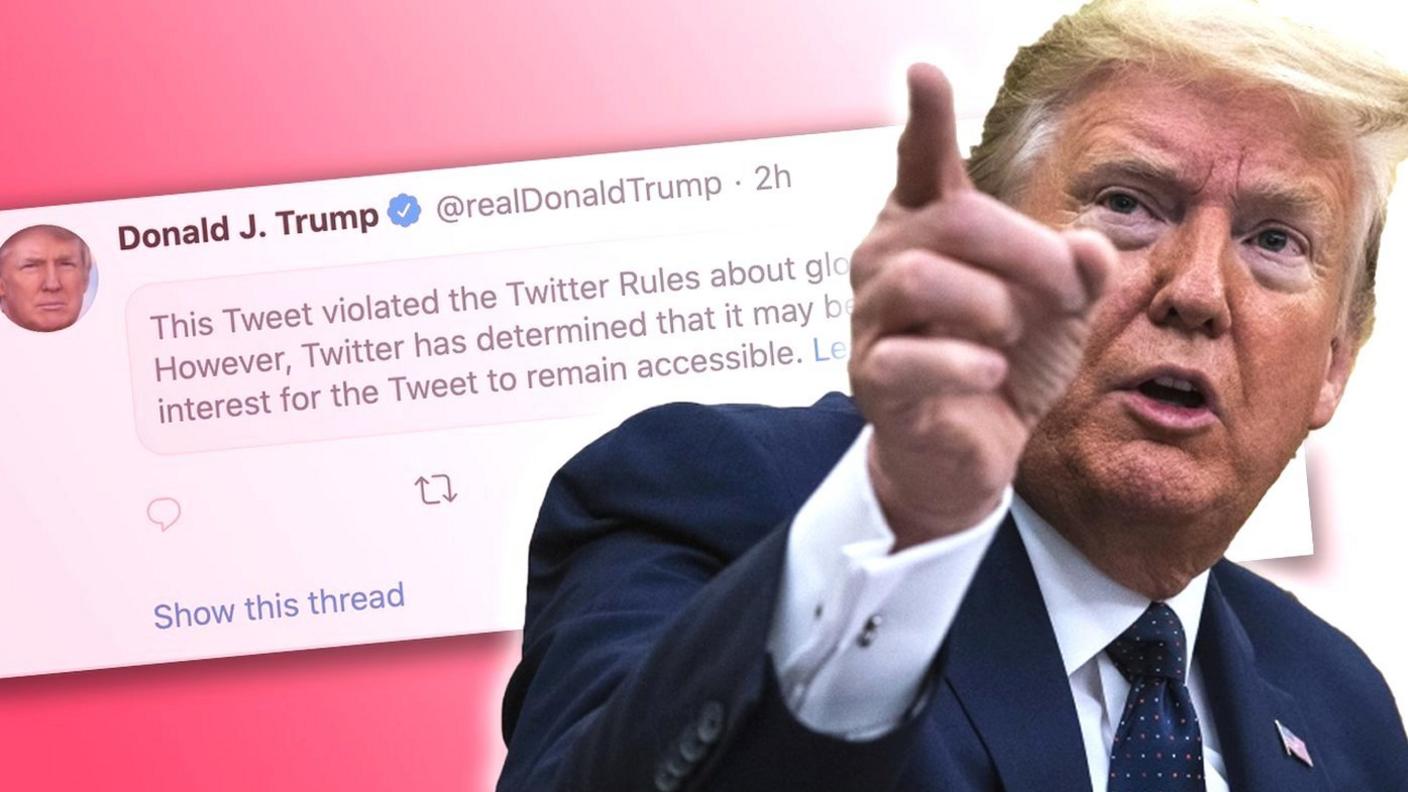
- Published6 October 2020
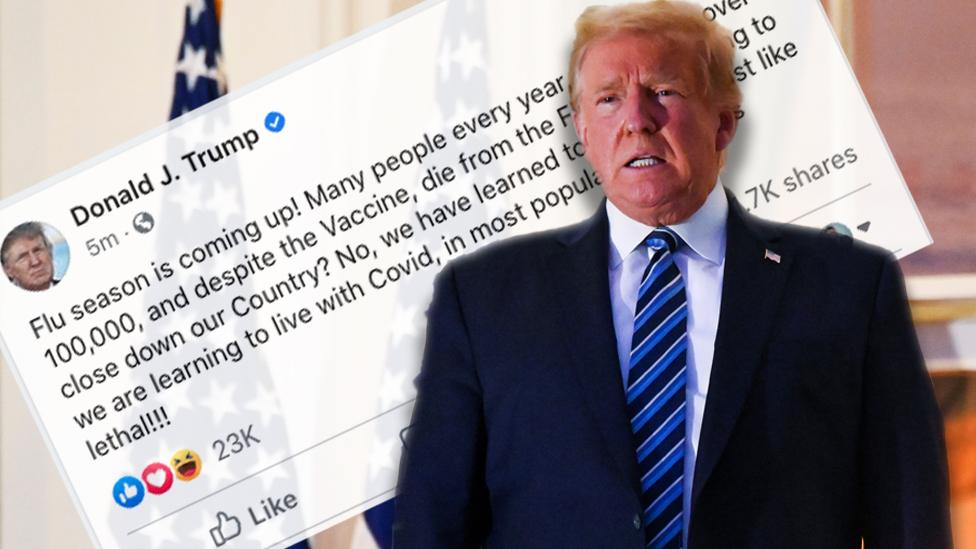
- Published28 October 2020
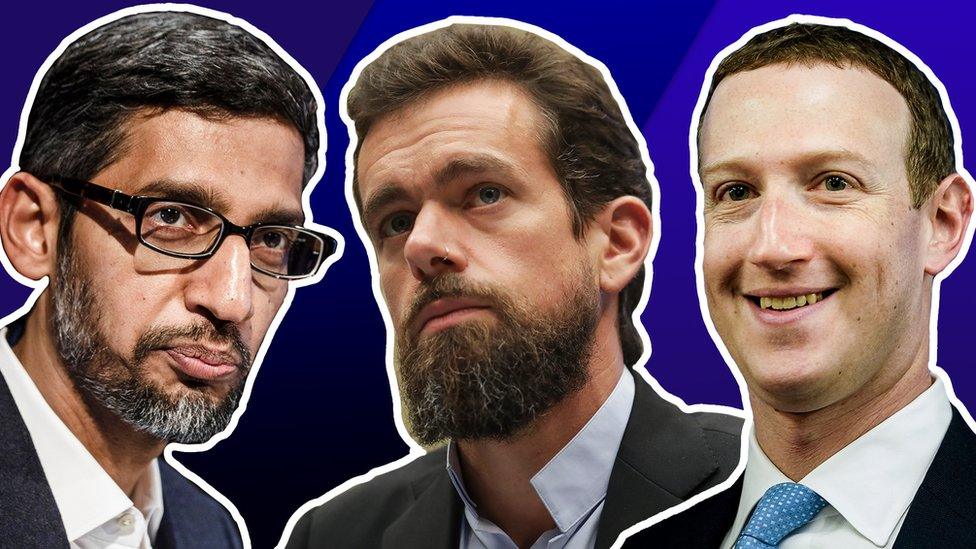
- Published27 October 2020
